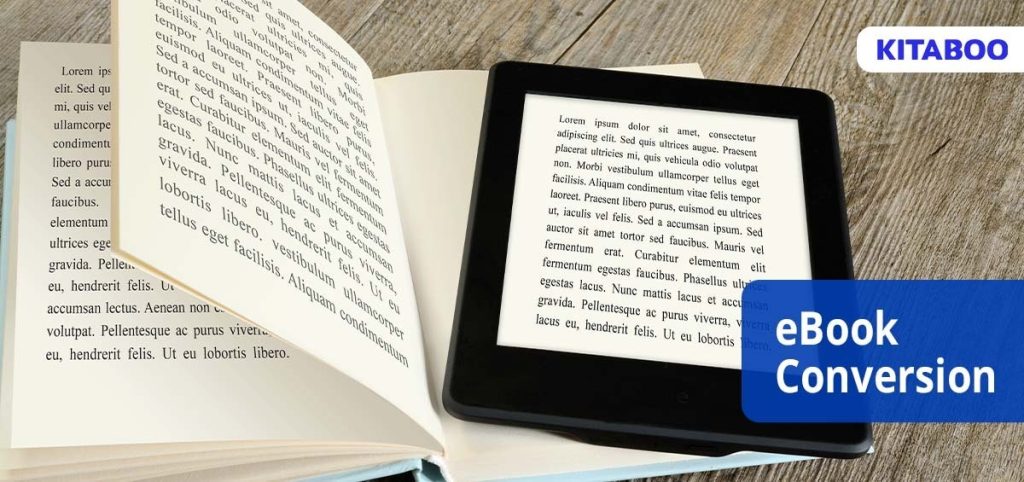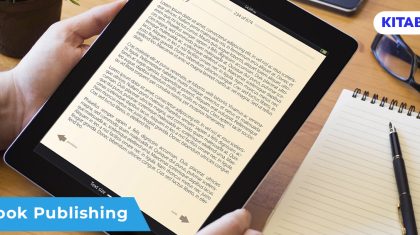
eBook Conversion Services for K12 Education: An In-Depth Guide to Converting Printed Curriculum to Digital
The education sector has witnessed a sea change in the last couple of years – traditional classrooms have now shifted online, and most students seem to approve of this change.
Even though the COVID-19 pandemic accelerated this move, we can’t help but agree that the digital classroom was a much-needed addition. Not everything can be taught using blackboards, chalk, and textbooks. Explaining complex topics is made easier with advanced technology such as virtual whiteboards, projectors, and eBooks.
We all know the importance of K12 education in shaping a student’s future. If their foundation is not strong enough, they will likely struggle in college and further in their careers.
However, the shift to digital requires a budget and a whole lot of experience. We can begin our journey with small steps—the very first thing students need to do is get accustomed to the new normal of eBooks. eBook conversion is of great help in this matter; one can simply convert a book to an eBook using an eBook conversion software.
In this article, we’ll give you an in-depth guide on how you can enrich the learning experience for K12 students by converting printed curriculum to digital. Here’s what we’ll cover.
Table of Contents
The Basics of eBook Conversion: Concept, Importance, and More
eBook conversion is the process of turning either a physical book or a digital book into a format that is optimized for digital delivery i.e. – A format that can be read across the desired devices and operating systems.
These conversions have gained immense popularity in recent years as online media has taken over as the main platform for publishing and consuming content. The structure for eBooks makes it simple to search for keywords on the internet and reduces the size of eBooks.
Additionally, most eBook conversion software allows you to protect the eBook files you create using passwords, so safety is never an issue.
In the process of converting eBooks, you also get to eliminate warehousing costs, future-proof your eBooks against damage, theft, or loss, and much more. There will never be a shortage of copies for K12 learners, as additional copies can be created within minutes.
Benefits of eBooks in K12 Education
Books are an integral part of education, regardless of the level of study. K12 education is an important part of the lives of all learners, and it includes many complex topics that are hard to master.
Not all students learn at the same pace and in the same way. An eBook not only caters to multiple kinds of learners but also ensures that the students get in-depth knowledge of their current topic of study before moving on to a new one.
Besides that, here are some other great benefits of eBooks for K12 education.
1. Flexibility and Portability
Gone are the days when learners were required to carry bags full of heavy textbooks back and forth from school. With eBooks, students only need to carry the device they use to access their eBooks, and they are good to go because thousands of eBooks can fit on one device.
Additionally, not all eBooks require a specific device to be viewed.
2. Supports Offline Access
The Internet is accessible by over 50% of the world’s population but occasionally, connectivity and connection issues affect us all.
Mobile devices now offer offline services to ensure that a poor internet connection never gets in the way of learning. Learners can simply download their eBook offline and access it anytime and anywhere.
3. Delivers Updated Information
With traditional textbooks, publishers are required to bring out a new edition of the same book to reflect changes. This causes serious trouble for both the publisher and the learner.
With eBooks, study materials are kept on the cloud, which allows publishers to update the eBook every time there is new information, and the changes will be seen in all its copies. Therefore, the learners can be certain that they always carry the most recent information.
How to Convert a Book to an eBook with KITABOO
Converting hard copies to soft copies could appear a bit complicated initially, but we’ll break it down for you. Here are three ways to approach it.
1. Remove the Binding (Debinding)
Debinding books is a simple, quick, and affordable process that is widely regarded as among the best methods of eBook conversion. Here are the steps you need to follow:
- Step 1: Carefully take the bindings off of each book you would like to convert. Since each book is bound differently, you must remove its pages with extreme caution to prevent damage.
- Step 2: After the binding is removed, isolate each piece of paper as a separate page. Trim along the left and right margins of the book to accomplish this.
- Step 3: In this step, you will need to insert these pieces of paper into a document feeder in the correct order. A page scanner or a multi-function printer can serve as your document feeder. Place your documents in the feeder one at a time, and the feeder will scan each one completely.
- Step 4: Lastly, save the document you have scanned as a PDF file using any software of your choosing to turn it into an eBook.
2. Scan the Book
For larger quantities, this might be a simpler method to follow. It can be performed using either a smartphone or an image scanner. Here is a list of actions you must take in both situations:
- Step 1: Using the equipment of your choice, scan each page of the book individually.
- Step 2: Use an OCR program to convert those same files into text. Examine the text file carefully for any grammar or spelling mistakes.
- Step 3: Save the document as ‘doc’ or ‘docx’ before you import it into a PDF application or an open-source application.
This method is largely utilized by many publishers, but it also has some drawbacks. The tonality of the books often changes if tiny errors are overlooked, and sometimes, the scan quality can be poor.
3. Consider Taking Professional Guidance
Finally, and perhaps most importantly, seeking professional assistance for eBook conversion is one of the most efficient ways to convert your books.
Numerous expert conversion services available in the market can assist you.
Such service providers allow you to safeguard, sustain, and retain the overall quality of the books while performing thousands of digitalization procedures concurrently and possessing the necessary tools, skills, and knowledge.
Conclusion
K12 learners of today are extremely tech-savvy and curious.Interactive eBooks fulfill their demands effortlessly as compared to a printed curriculum.
A digital publishing platform such as KITABOO could help in this regard. With KITABOO you can not only convert your existing books with ease, you can also create eBooks from scratch. The eBooks created via KITABOO can be bettered with multimedia-rich content.
To know more on how converting to eBooks can enrich your student’s learning experience, write to us at contact@kitaboo.com.
Also check:
Discover how a mobile-first training platform can help your organization.
KITABOO is a cloud-based platform to create, deliver & track mobile-first interactive training content.


